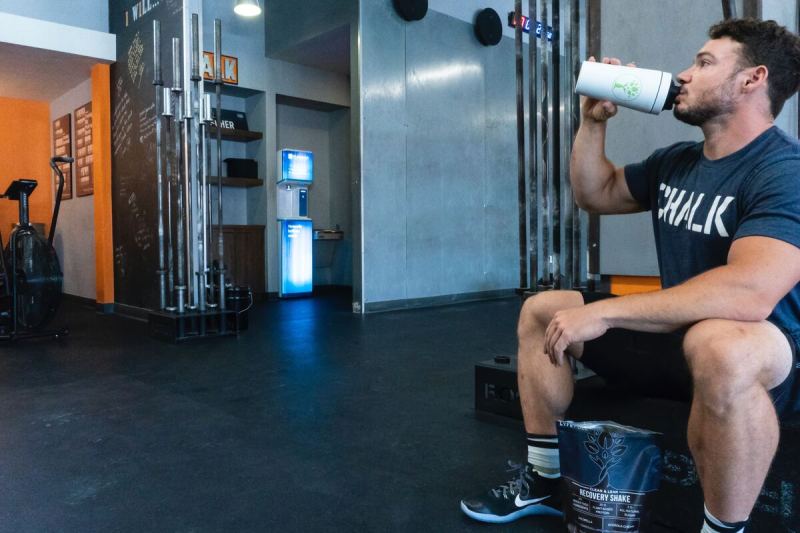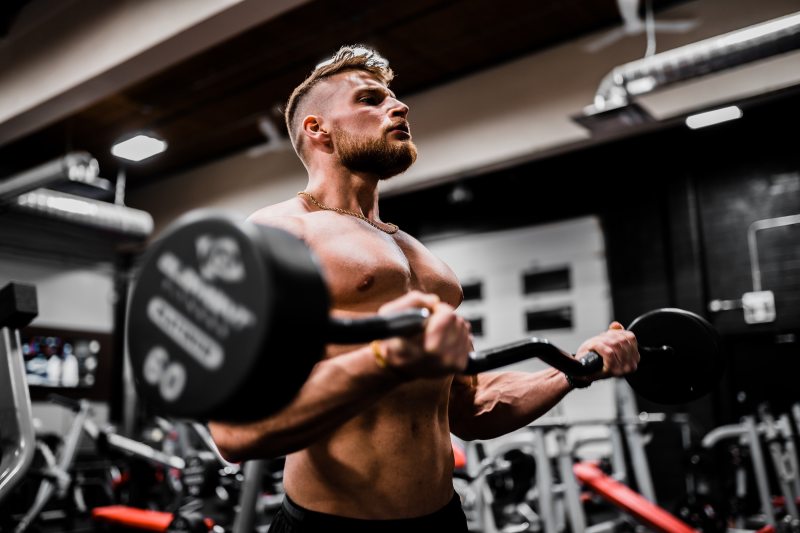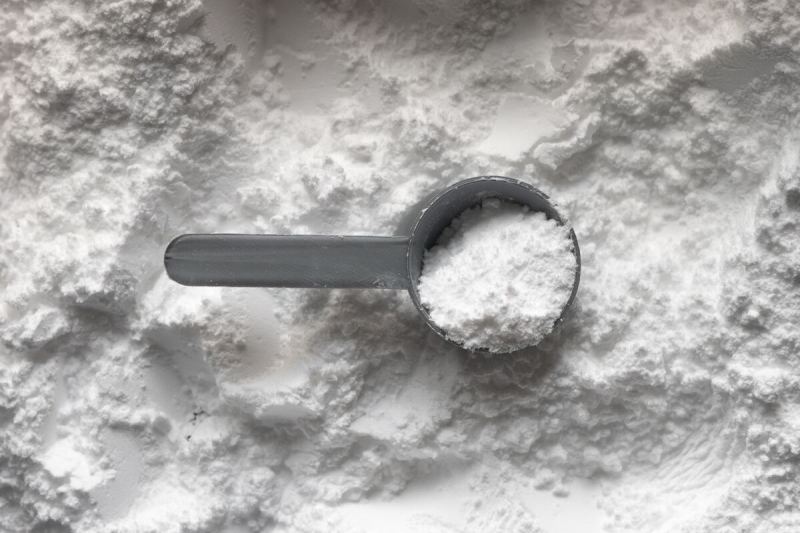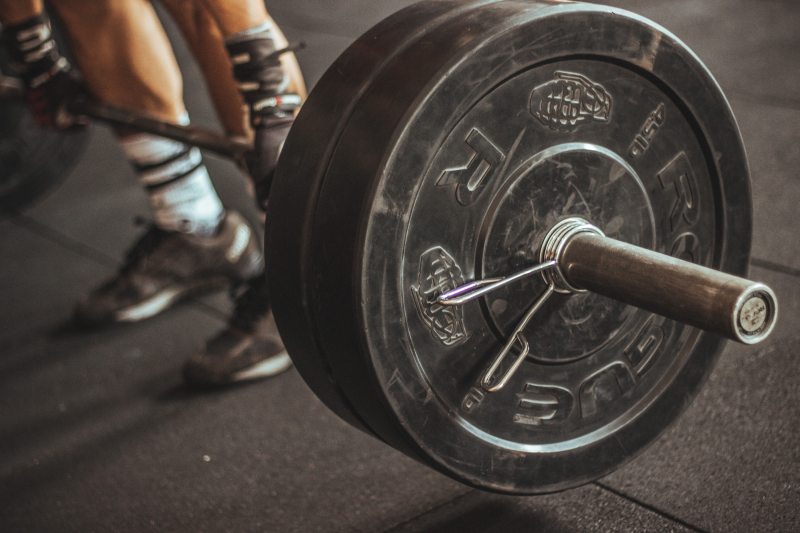
If you frequent supplement stores and/or the gym, then you have likely heard of creatine supplements. Creatine is one of the most popular athletics performance supplements out there, as it is also considered the most well-researched and effective, especially when it comes to increasing muscle size and strength.
However, if you’re not steeped in the world of athletic performance or have just begun immersing yourself in your workouts and the quest to step up your fitness, the extensive litany of sports supplements that are available can be extremely overwhelming.
How do you know which supplements are safe and effective, which ones you may need, and how and why you may want to use one? Below, we place the spotlight on creatine supplements and answer these questions to give you the information you need to decide if you should take creatine to boost your athletic performance.
What is creatine?

Creatine is a natural, nitrogenous organic acid used primarily by muscle cells to provide quick-acting energy. In fact, 95% of the creatine in the body is stored in skeletal muscles, with the remaining 5% in the brain. Creatine is composed of three amino acids: L-arginine, glycine, and L-methionine, and it can be synthesized in the body or obtained in the diet through red meat, fish, or supplements.
In terms of an athletic supplement, creatine is primarily used to help build muscle and fuel resistance training workouts or high-intensity exercise, as it provides the substrate for the most rapid energy production pathway in the body. The theory is that by boosting energy production, athletes can work harder and perform better, thus reaping better gains and improvements. In other words, if you can lift more weight, you’ll get that much stronger and build that much more muscle.
How much creatine do you need?

Creatine needs depend on your activity level. The International Society of Sports Nutrition (ISSN) reports that larger athletes who train vigorously and intensely may need five to 10 grams of creatine per day. In contrast, smaller people and sedentary individuals will need considerably less.
Power athletes have the highest demand, as they are more likely to use up their stores of creatine on a daily basis. Additionally, individuals with certain muscular disorders, such as muscular dystrophy, may have even higher needs.
Benefits of creatine

The following are the reported benefits of creatine:
- Boosting high-intensity exercise performance, particularly in HIIT workouts
- Improving muscular strength and power
- Augmenting the effects of resistance training on strength and muscle mass
- Increasing muscle mass
- Minimizing muscle cramping
- Reducing muscle pain after workouts
- Speeding muscle recovery
- Reducing fatigue
- Hastening recovery from injury
- Improving symptoms in neurological conditions
Overall, creatine is primarily used to enhance high-intensity exercise performance (sprinting, jumping, lifting) and to build muscle mass.
Safety of creatine supplements

Though creatine supplements are still not cleared by the FDA, they are widely used and generally considered safe. They are also approved for use by athletes competing under the International Olympic Committee (IOC) or the National Collegiate Athletic Association (NCAA).
However, at high doses, there is a potential for adverse effects to the liver, kidney, or heart, along with less serious side effects such as stomach pain, nausea, diarrhea, and muscle cramping. Pregnant women or those with kidney disease, hypertension, or diabetes are advised not to take creatine supplements. If you have concerns, it’s a good idea to discuss your situation with your doctor to decide if creatine supplements are a good idea for you.
Should I take a creatine supplement?

If you’re a power athlete, looking to put on mass, or striving for big strength gains in the gym, a creatine supplement has the potential to be beneficial. If you eat a lot of red meat or fish, you may be getting enough creatine in your diet; however, vegans and vegetarians may have more to gain by taking a creatine supplement. Again, though, be sure to get the all-clear from your doctor first to make sure you have no underlying conditions that would make creatine supplements harmful to you.
Choosing a creatine supplement

Not all creatine supplements are created equal because their production is not well regulated. When choosing the best creatine supplement, it’s paramount to look for something as pure as possible — not blended with caffeine, ephedra, or other unwelcome or potentially dangerous substances. Start with just a little and work up to the full dose to see if you find it helpful and compatible with your body.
There are numerous types of creatine, and deciding which one is best for you can be confusing. Here are three of the most commonly used types of creatine to give you an idea of where to start.
Creatine monohydrate
Creatine monohydrate is by far the most commonly used type of creatine, as it’s considered to be the safest and most effective form. It’s also the most well-researched, and it’s very affordable, making it available to many people. This form is created by binding water molecules to the creatine.
Creatine hydrochloride
Creatine hydrochloride is a great choice because it’s known for being very effectively absorbed by the body. This form is created when the creatine forms a bond with parts of hydrochloride molecules. It’s also more acidic than other forms due to its naturally low pH. Another thing to note is that with most creatine, you will take five grams for one serving; you only need to take one gram of creatine hydrochloride.
Buffered creatine
Buffered creatine has a higher pH and is, therefore, more alkaline than both of the other creatine forms mentioned here. It’s created when creatine is buffered with sodium bicarbonate and/or sodium carbonate. This is also an effective form because when the creatine is processed by the body, there are fewer useless byproducts produced than with other types of creatine.
Frequently Asked Questions

Does creatine make you gain muscle?
Studies have shown that creatine can contribute to increased muscle mass, especially if you follow a consistent workout regimen.
Do I need creatine if I take protein?
You don’t ever need to take creatine, but many people do take it alongside protein powder to maximize their gains. If you take both, you will likely see an increase in performance and muscle mass.
Will creatine help me lose belly fat?
Because creatine encourages better performance during your workouts, you may find yourself upping the intensity and burning more calories. If this is the case, you may burn more stored fat, but you cannot spot-reduce belly fat either way.
Editors' Recommendations
- Is honey a superfood? Here are 10 reasons we think so
- These beach body workout tips from a pro will help you get in shirtless shape fast
- The chromium benefits you should know about (and the best food sources for you)
- Your sedentary lifestyle is doing so much damage — here’s what to know and how to get moving
- These are the benefits of beets (the ultimate natural pre-workout boost)




